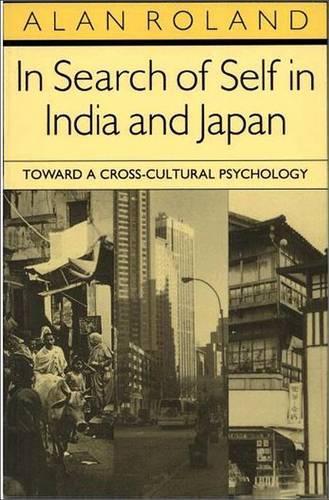
In Search of Self in India and Japan: Toward a Cross-Cultural Psychology
(Paperback)
Publishing Details
In Search of Self in India and Japan: Toward a Cross-Cultural Psychology
By (Author) Alan Roland
Princeton University Press
Princeton University Press
1st July 1991
United States
Classifications
Professional and Scholarly
Non Fiction
Social, group or collective psychology
155.89
Physical Properties
Paperback
424
Width 152mm, Height 229mm
595g
Description
'This book addresses a fundamental question--the universality of human nature...Drawing upon work with patients and therapists in both India and Japan, he describes the profound differences between the Western individualized self and the familial self so central to Asian culture...Of particular value is Roland's sensitive treatment of the evolving identity of women in the two cultures, as well as his exploration of the deeply significant spiritual self, a topic that is largely neglected in Western theory and practice.' -Choice
Reviews
"While Western psychology assumes that human nature is the same everywhere, there are profound psychological differences from culture to culture, according to a growing body of evidence ... One of the most extensive criticisms of Western psychology has been made by Dr. Roland in [this] book."--The New York Times "Roland compares the extended familial-self typical of Indian and Japanese experience with the individualized self-concept of America... This book adds crucial psychological dimensions to our study of Eastern philosophy and religion. It catches the vital nuances of self-experience that escape philosophical and historical approaches."--Harold Coward, Hindu-Christian Studies Bulletin "This book addresses a fundamental question--the universality of human nature... Drawing upon work with patients and therapists in both India and Japan, [Roland] describes the profound differences between the Western individualized self and the familial self so central to Asian culture... Of particular value is Roland's sensitive treatment of the evolving identity of women in the two cultures, as well as his exploration of the deeply significant spiritual self, a topic that is largely neglected in Western theory and practice."--Choice
